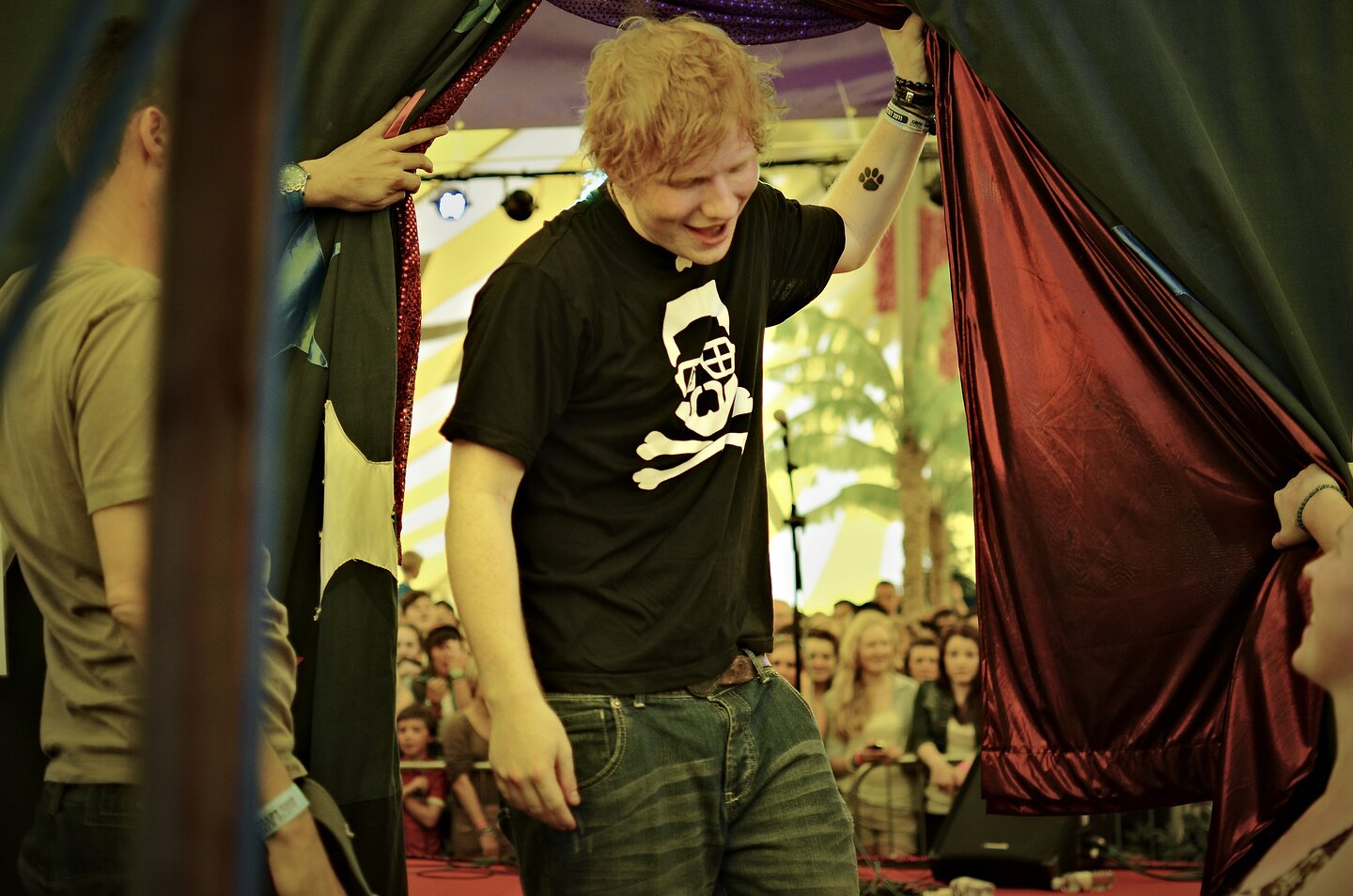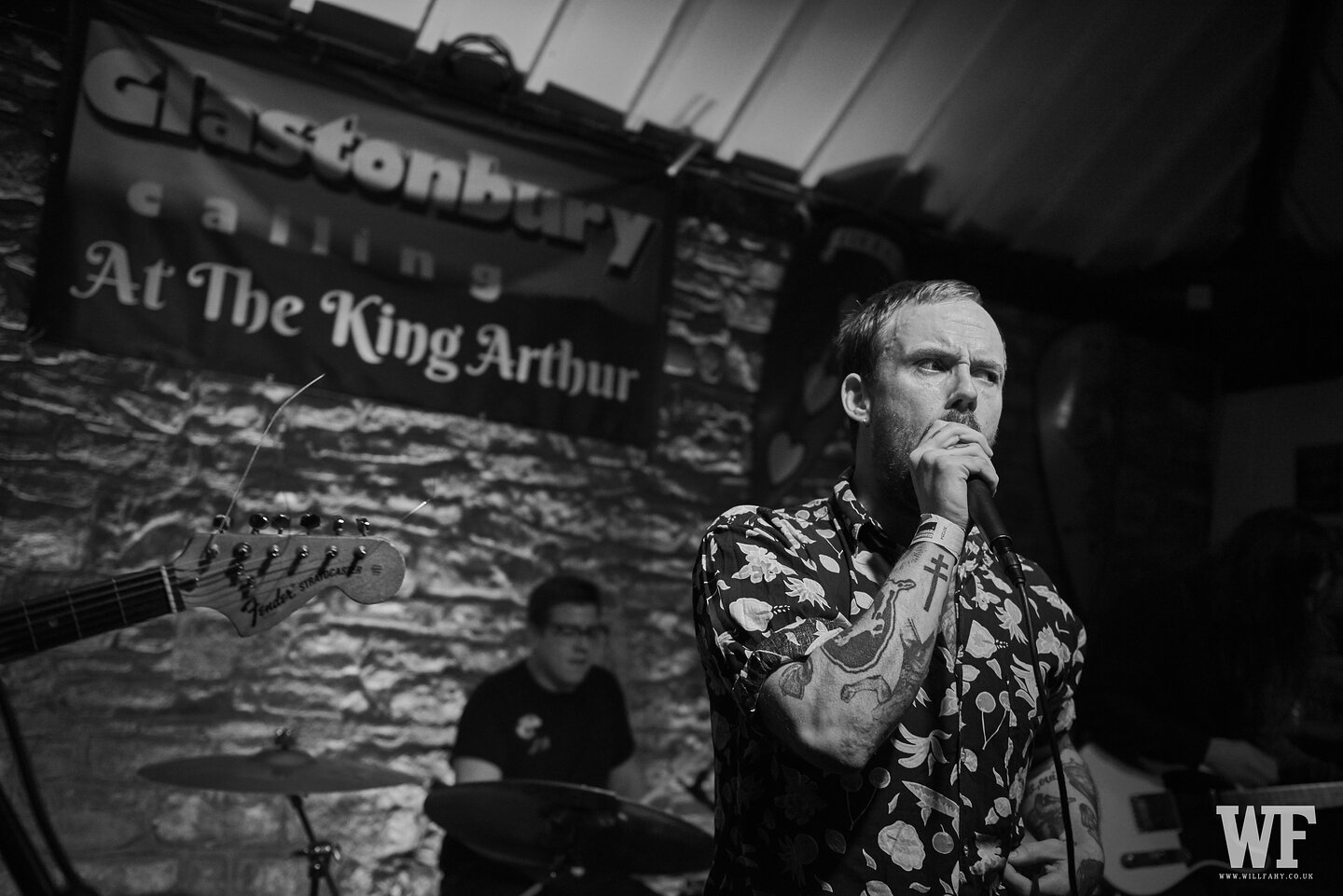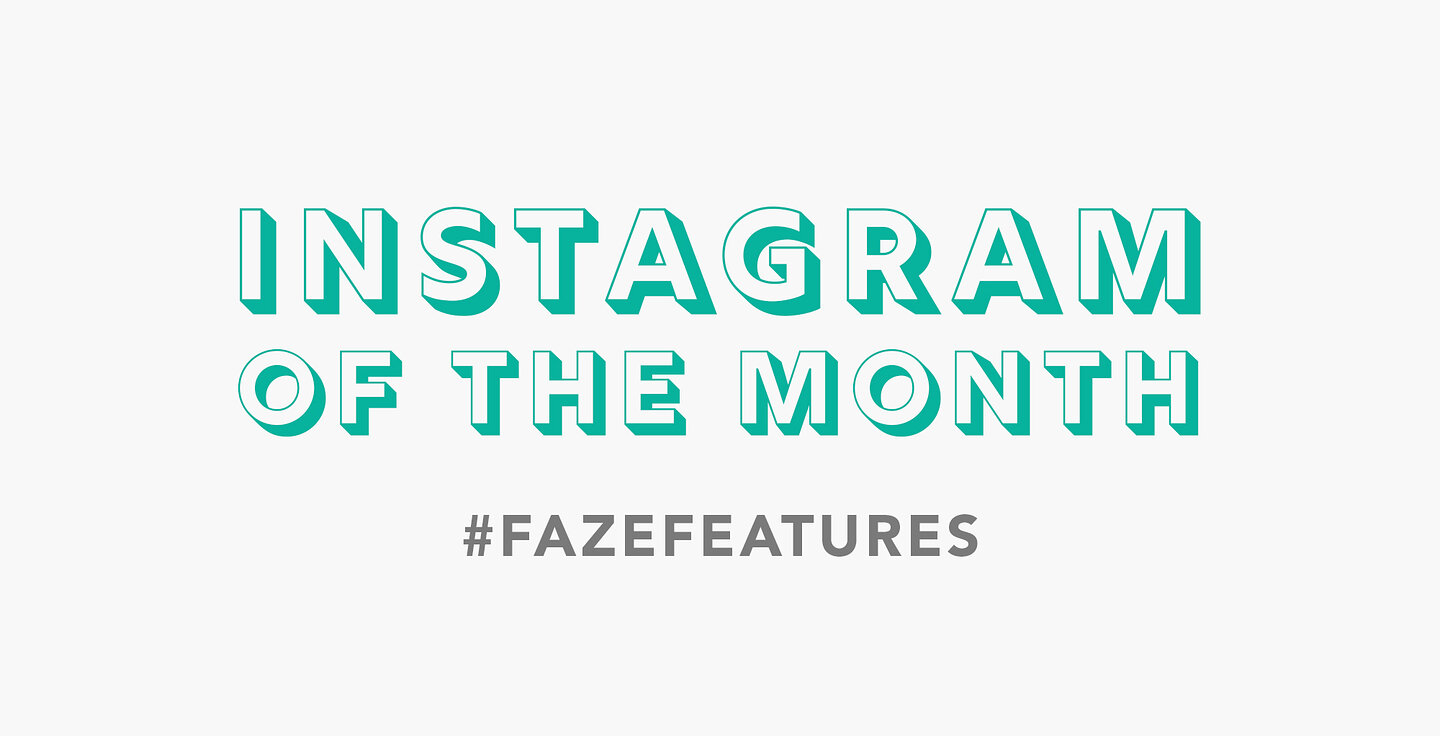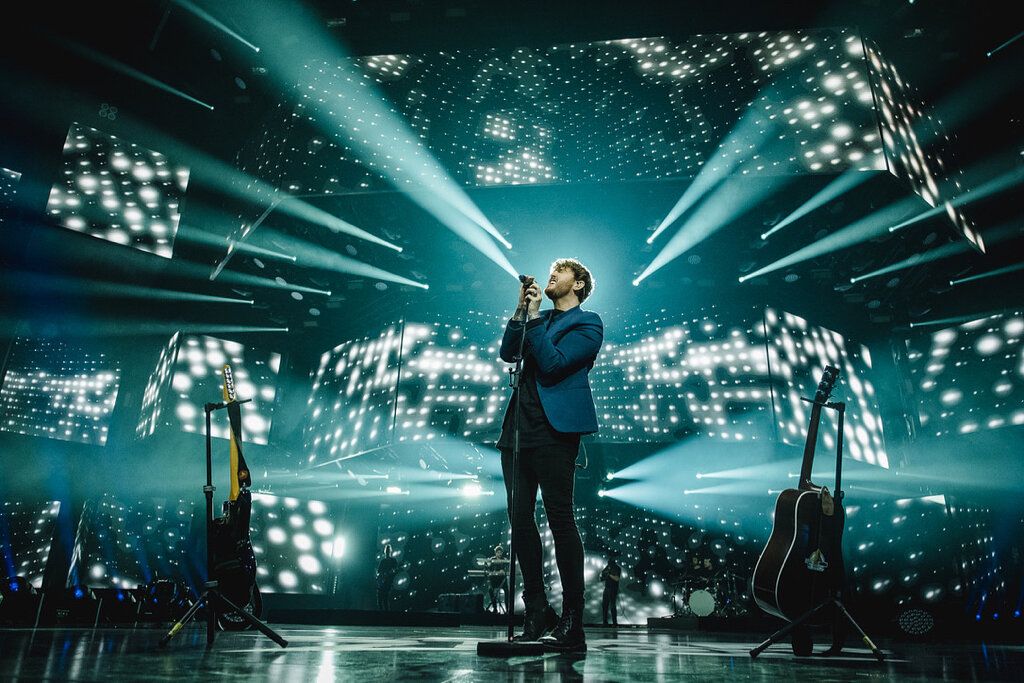Music Photography for beginners - 5 top tips
Are you a budding music photographer? Here's our 5 top tips to get into shooting shows!
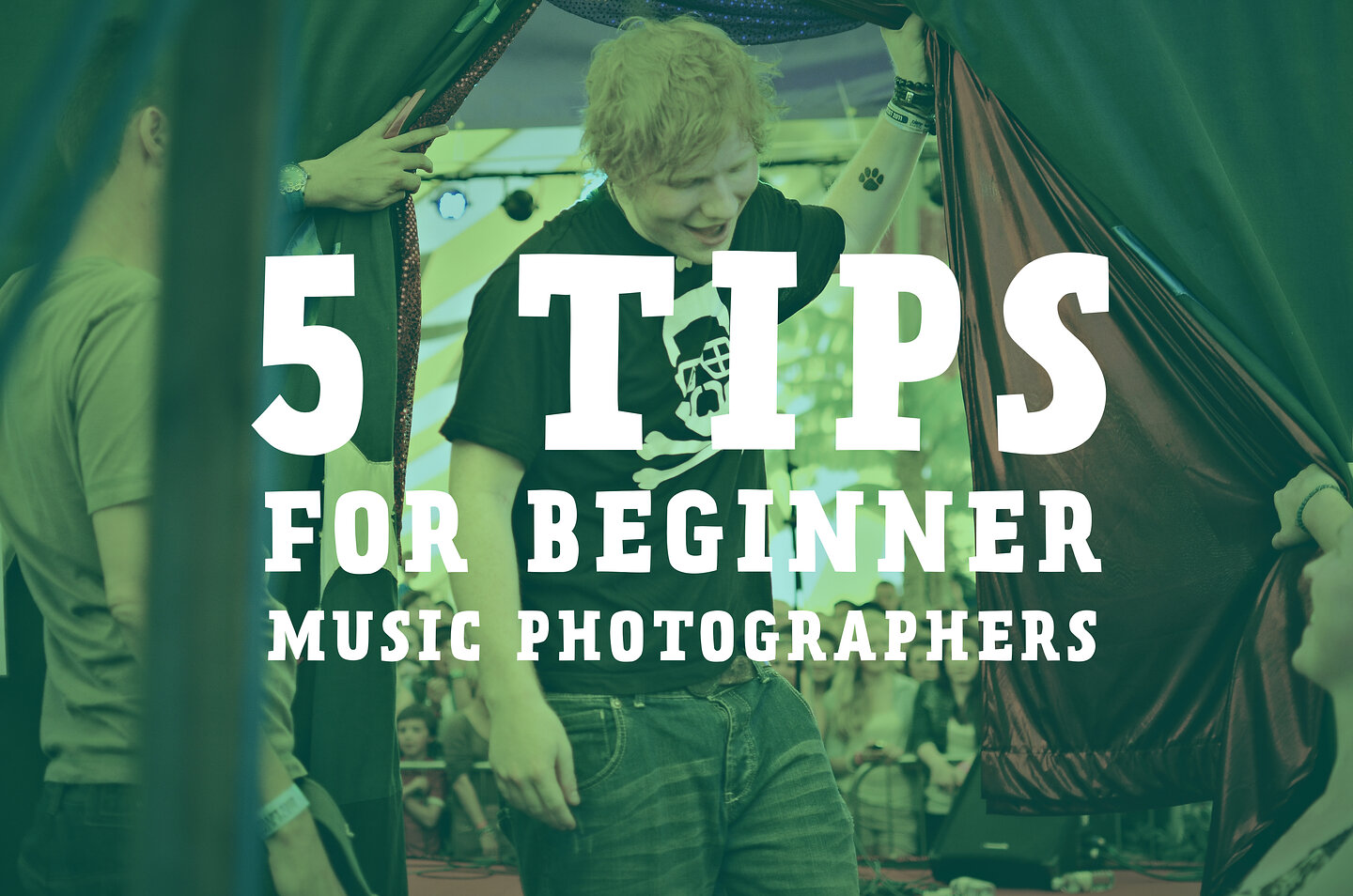
5 important tips for music photographers
Here's 5 helpful tips to help start your career in music photography, there are many do's and don'ts involved in starting out in photography in general, but these 5 tips can guide you to shoot your first show and start building portfolio.
I shot this image of Ed Sheeran at a really small festival in Wales in 2011 when he was just breaking through - he's gone on to be one of the most recognised musicians in the world. Access to small and unknown acts is where it begins for most music photographers - it just so happened Ed Sheeran went on to be named as Artist of the Decade! ISo, with a little bit of luck - you may photograph the next big star before you know it!
1. Small shows
Nearly every music photographer starts with small shows, and sometimes these small shows can be the most fun, you can shoot intimately with the band but lighting can be more of a challenge, so don't be disheartened if you don't produce stunning results first time out.
Normally with a small show, there won't be a photo pit to distance yourself from the crowd - there may not even be much of a crowd! Be polite, try not to block other peoples view and don't barge your way to the front - if you want to shoot at the front, get there early then you'll be able to find a spot nice and easily.
If you like shooting with flash, sometimes small venues allow this so it can work to your advantage - make sure you get pre-approval from the band and venue though. There are other advantages to shooting small shows too, such as easier access to backstage areas - you can create incredibly intimate imagery backstage, there's usually a lot going on and if you're close to the band, they'll act naturally around you which is a big bonus. If you don't know the band, make them feel comfortable in your presence.
Bonus Tip - Remember, all bands have to start somewhere too! Don't get disheartened by shooting bands you've not heard of before, they might be the next big thing in a few years. IDLES (the image below) performed in a tiny pub in Glastonbury town centre, a few years later they were gracing huge stages in front of massive audiences across Europe and beyond - so keep at it!
IDLES performing in a pub, in Glastonbury. © Will Fahy
2. Build your network
Building your own network is crucial - start by reaching out to local bands, venues and publications to see if they'll let you cover their shows, the good thing about email is that it's free and you have nothing to lose. Be prepared that you may not hear back from everyone or anyone at all, the people you want to connect with are usually very busy people, so make your communication clear and to the point - you don't want to waste their time.
It's also very likely that you'll need to build a portfolio before you'll be able to start shooting bigger bands and shows. It's also likely you won't be able to charge whilst you're starting out, but always keep this in mind, don't let anyone take advantage of you by continually shooting for free - it's important to learn, but it's also important that you're happy.
Hot Chip, Bristol O2 Academy, Bristol. © Will Fahy
3. Know your kit
If you don't know your kit, stop right reading this, go and pick up your camera and learn how to use it properly. It can be intimidating to step out your comfort zone when choosing settings, a good place to start is learning about the exposure triangle. It will help you understand how your camera processes light. Balancing aperture, shutter speed and ISO to produce correctly exposed images is the basis of all photography. Once you've cracked this, your understanding of photography will improve, leading to increased confidence in stepping away from Auto and enabling you to try more creative techniques.
You can learn absolutely anything on YouTube these days - there are some great photography channels out there. Music photography is fast, with constantly changing conditions you'll need to know how to adjust settings in the blink of an eye, so keep practising until it becomes second nature. If you like changing and updating your camera, stick to a certain brand as you'll get familiar with the menu systems and button layouts much quicker.
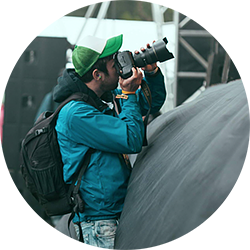
4. Practise, practise, practise.
Practice is key to building your confidence. If you've been out shooting shows for a while and you're not really getting the results you're after - stop and ask yourself why. Is it your kit? Your technique? Your camera settings? These are all things you can improve on with practise.
Once you get that understanding of how your camera really works, you won't look back. Use social media to your advantage - join music photography groups and follow the top music photographers to see what and how they're shooting. There's nothing wrong with asking questions either, learn their approach, take inspiration and build your own style that suits your way of shooting.
5. Portfolio
Portfolios are a massive part of landing bigger jobs - the people who will give you the opportunities will want to have confidence in you and what you're capable of. This is why starting small is good - generally, these shows are easier to gain access - if you can get results from a poorly lit and unglamorous back room in a pub, you'll have no problem going into a properly lit and dedicated music venue.
Going back to the previous point on building your own style is crucial here too, potential employers will want to see a style running through your portfolio. They will want to see a consistency in any work you may produce for them - they've seen the style of your work, they like it and that's what they will expect from you.
Be courteous, polite and thankful for early opportunities, practise lots, reach out to others, build your portfolio and above all, enjoy your journey!
By Will Fahy
